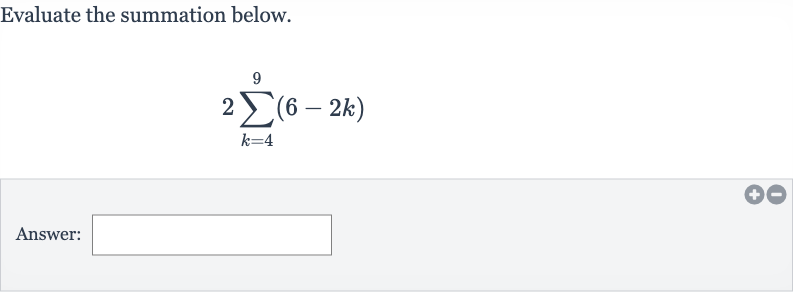AI tutor
Full solution
Q. Evaluate the summation below.Answer:
- Multiply by : Write down the expression inside the summation and multiply it by as indicated by the problem.The expression inside the summation is , and we need to multiply it by , which gives us .
- Apply summation to terms: Apply the summation to each term in the expression from to . We need to sum both and separately over the range of from to .
- Evaluate constant term: Evaluate the constant term in the summation.Since is a constant, the summation of from to is simply multiplied by the number of terms, which is .So, .
- Evaluate variable term: Evaluate the variable term in the summation.We use the formula for the sum of the first integers, , but we need to adjust it for the range from to .First, find the sum from to , then subtract the sum from to ...Now subtract the two sums: .Finally, multiply by to account for the term: .
- Combine results: Combine the results from Step and Step to find the total sum.Total sum = sum of constant terms + sum of variable terms = .

